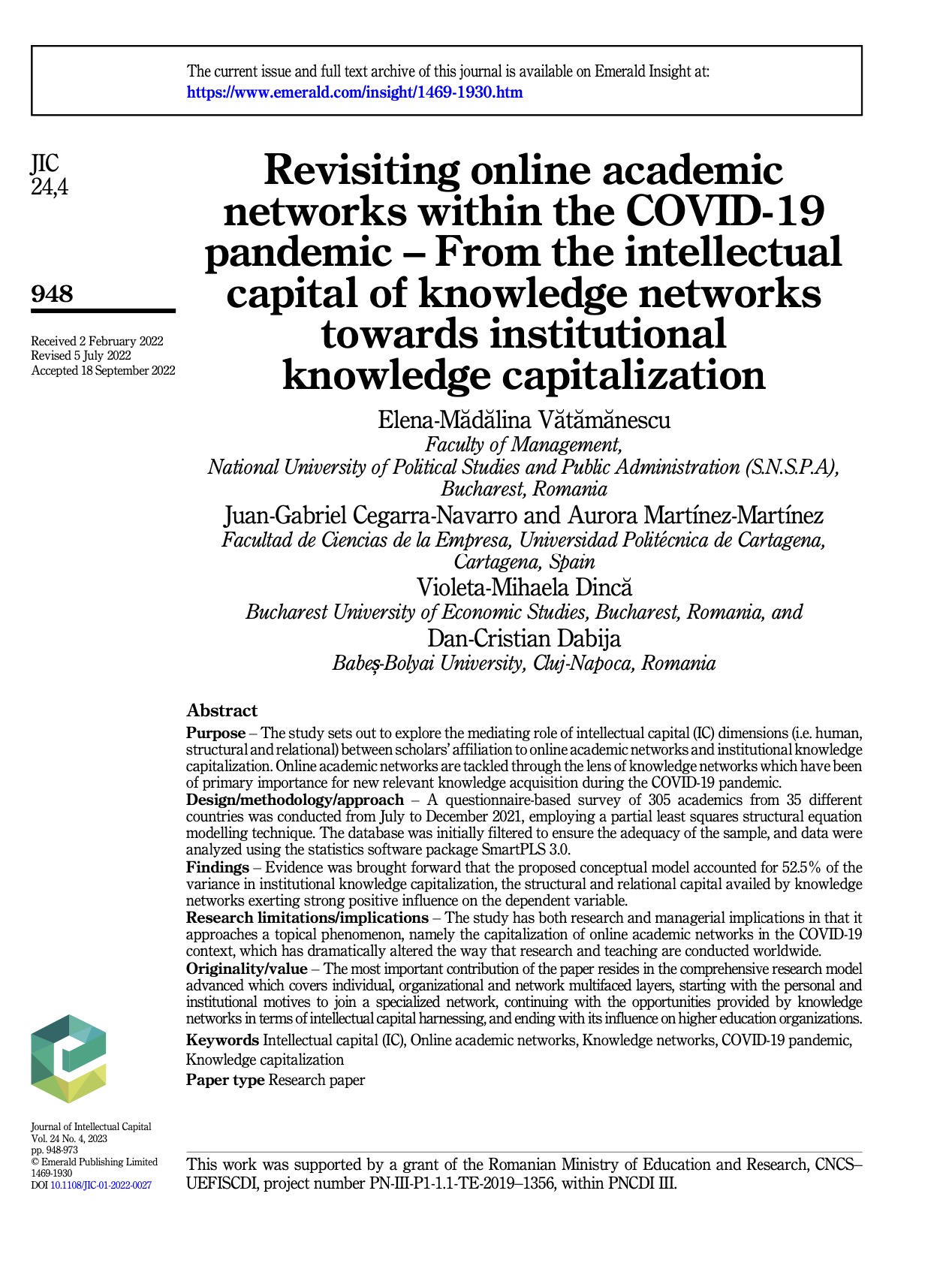|
|
|
Vatamanescu, E.M., Cegarra-Navarro, J.G., Martínez-Martínez, A., Dinca, V.M. & Dabija, D.C. (2023) Journal of Intellectual Capital [Core Economics, Q2]
Autor:
Cristina Alexandrina Stefanescu
Publicat:
15 Iulie 2024
Vatamanescu, E.M., Cegarra-Navarro, J.G., Martínez-Martínez, A., Dinca, V.M. & Dabija, D.C. (2023) Revisiting online academic networks within the COVID-19 pandemic – From the intellectual capital of knowledge networks towards institutional knowledge capitalization. Journal of Intellectual Capital, 24(4), 948-973.
DOI: https://doi.org/10.1108/JIC-01-2022-0027
✓ Publisher: Emerald
✓ Categories: Business; Management
✓ Article Influence Score (AIS): 0.849 (2023) / Q2 in all categories.
Abstract: The study sets out to explore the mediating role of intellectual capital (IC) dimensions (i.e. human, structural and relational) between scholars' affiliation to online academic networks and institutional knowledge capitalization. Online academic networks are tackled through the lens of knowledge networks which have been of primary importance for new relevant knowledge acquisition during the COVID-19 pandemic. A questionnaire-based survey of 305 academics from 35 different countries was conducted from July to December 2021, employing a partial least squares structural equation modelling technique. The database was initially filtered to ensure the adequacy of the sample, and data were analyzed using the statistics software package SmartPLS 3.0. Evidence was brought forward that the proposed conceptual model accounted for 52.5% of the variance in institutional knowledge capitalization, the structural and relational capital availed by knowledge networks exerting strong positive influence on the dependent variable. The study has both research and managerial implications in that it approaches a topical phenomenon, namely the capitalization of online academic networks in the COVID-19 context, which has dramatically altered the way that research and teaching are conducted worldwide. The most important contribution of the paper resides in the comprehensive research model advanced which covers individual, organizational and network multifaced layers, starting with the personal and institutional motives to join a specialized network, continuing with the opportunities provided by knowledge networks in terms of intellectual capital harnessing, and ending with its influence on higher education organizations.

inapoi la stiri  vezi evenimentele
vezi evenimentele  home
home 
|